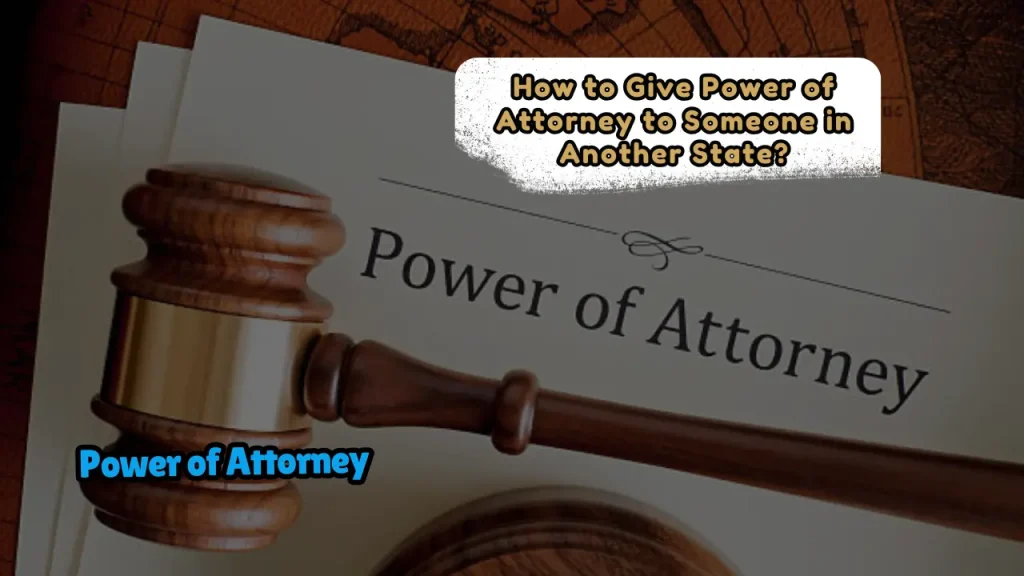How to Give Power of Attorney to Someone in Another State?
Yes, you can grant power of attorney (POA) to an agent in another state—but cross-state POAs require careful planning to comply with varying legal requirements. Whether managing finances for an aging parent, handling a business, or preparing for emergencies, here’s how to ensure your POA holds up across state lines.
Table of Contents
Key Considerations for Cross-State POAs
A POA allows someone (your “agent” or “attorney-in-fact”) to act on your behalf. When your agent lives in another state, follow these rules:
- POA Recognition: All 50 states must honor valid out-of-state POAs under the Uniform Power of Attorney Act (UPOAA), adopted by 28 states. However, non-UPOAA states (e.g., Florida, New York) may impose extra rules.
- State-Specific Requirements:
- Notarization: Required in all states, but some (e.g., Texas, California) also mandate witnesses.
- Special Clauses: States like Ohio require explicit language for real estate transactions.
- Registration: Some states, like North Carolina, require POAs to be filed with local courts if managing property.
Statistic: 65% of cross-state POAs face delays due to non-compliance with witness or notary rules, per a 2023 National Elder Law Foundation report.
Step-by-Step Guide to Creating a Valid Cross-State POA
1. Choose the Right Type of POA
- Durable POA: Stays valid if you become incapacitated (ideal for long-term care).
- Limited POA: Restricts the agent to specific tasks (e.g., selling a home in another state).
- Springing POA: Activates only under predefined conditions (e.g., medical incapacity).
Pro Tip: Opt for a durable POA to avoid gaps in authority during emergencies.
2. Confirm State Compliance
- Agent’s State: Ensure the POA meets the agent’s state laws. For example:
- Florida: Requires two witnesses + notary (FL Statutes §709.2142).
- California: Accepts remote online notarization (RON) for out-of-state principals.
- New York: Demands a signed “Statutory Gifts Rider” for gifting authority.
- Your State: Follow your home state’s execution rules (e.g., notarization, witnesses).
LSI Keywords: “multi-state power of attorney compliance,” “remote notarization for POA.”
3. Draft the POA Document
- Explicit Authority: Include phrases like “manage out-of-state bank accounts” or “sell property in [State].”
- State-Specific Language: Use templates from the agent’s state bar association or legal websites like LawDepot.
- Revocation Clause: Specify how to cancel the POA to prevent confusion with prior versions.
4. Execute the Document Correctly
- Notarization: Use a mobile notary or online notary service (legal in 44 states).
- Witnesses: Some states require disinterested witnesses (e.g., not family members).
- Recordkeeping: Provide copies to banks, healthcare providers, and the agent.
Example: If you live in Texas but your agent is in New York, Texas requires notarization, while New York may demand additional witness signatures.
5. Register the POA (If Required)
States like Michigan and North Carolina require POAs to be filed with the county clerk if managing real estate. Check local probate court rules.
6. Communicate with Financial Institutions
Banks in the agent’s state may request:
- A certified copy of the POA.
- Their internal POA forms (e.g., Chase’s Form 100).
- Proof of the principal’s mental capacity at signing.
Case Study: A 2023 AARP survey found 30% of agents faced pushback from banks when using out-of-state POAs. Pre-approval with the bank minimizes delays.
Related article for you:
Power of Attorney Abuse: How to Recognize, Prove, and Prevent Financial Exploitation

Common Challenges (and Solutions)
- Rejected POAs:
- Cause: Missing witness signatures or stale documents.
- Fix: Use a state-specific template and update the POA every 2–3 years.
- Conflicting State Laws:
- Example: A Florida POA lacking two witnesses won’t work in Florida, even if valid elsewhere.
- Solution: Draft separate POAs for each state or use a “universal” POA reviewed by attorneys in both states.
- Principal’s Incapacity:
- Springing POA Risk: Some states (e.g., Nevada) reject springing POAs without strict medical proof.
- Fix: Pair a durable POA with a physician’s letter outlining incapacity criteria.
State-by-State Spotlight
- Texas: Permits digital signatures and remote notarization (Texas Estates Code §751.0021).
- California: Honors out-of-state POAs if compliant with California’s statutory form (Probate Code §4401).
- Pennsylvania: Requires agents to sign a “Notice of Responsibilities” acknowledging fiduciary duties.
SEO Tip: Target phrases like “how to grant POA to someone in Florida” or “California-compliant power of attorney for out-of-state agent.”
Alternatives to Cross-State POAs
- Joint Accounts: Immediate access but shared liability.
- Revocable Trust: Name the out-of-state agent as co-trustee.
- Online Banking Tools: Use platforms like EverSafe for limited financial oversight.
Did You Know? Only 15% of U.S. adults have a POA, leaving millions vulnerable during crises (Forbes, 2023).
Resources
- State-Specific POA Forms:
- Remote Notarization Services:
- Notarize.com
- DocuSign Notary
- Legal Assistance:
- National Academy of Elder Law Attorneys (NAELA) for referrals.
- LegalZoom for affordable, state-compliant POAs.
Final Takeaway
Granting power of attorney across state lines is legal but demands meticulous attention to both states’ laws. Always use state-specific templates, secure proper notarization, and consult an elder law attorney to preempt disputes. By addressing compliance upfront, you’ll empower your agent to act swiftly—no matter where they live.
About the Author

Sarah Klein, JD, is an experienced estate planning attorney who has helped clients with wills, trusts, powers of attorney, and probate matters. At All About Lawyer, she simplifies complex estate laws so families can protect their assets, plan ahead, and avoid legal headaches during life’s most sensitive moments.
Read more about Sarah
